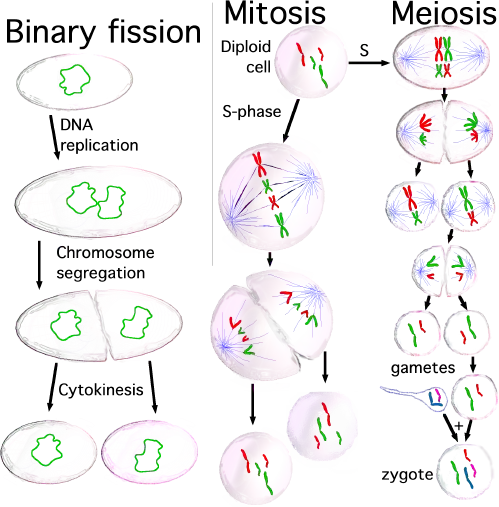[Disclaimer: This answer is research; not medical and/or legal advice. I am not a lawyer: < https://en.wikipedia.org/wiki/Practicing_without_a_license >.
Though perhaps pedantic, it is better to be safe than sorry.]
This is Direct Answer to Your Question:--
The matter is controversial, with some established parameters as what constitutes life. An example of an established parameter for being alive is having: cells or reproduction.
It is unclear whether A.I. can create a copy of itself that is independent of its parent. Arguably, partial satisfaction of the aforementioned has already occurred with code that is self-learning.
May insight on artificial life lead us to saving lives, particularly in regards to CoVid-19. We want children to live.
The Controversy
To begin, there is some controversy surrounding the definition of life in Biology.
" [...] The definition of life has long been a challenge for scientists and philosophers, with many varied definitions put forward. This is partially because life is a process, not a substance. This is complicated by a lack of knowledge of the characteristics of living entities, if any, that may have developed outside of Earth. Philosophical definitions of life have also been put forward, with similar difficulties on how to distinguish living things from the non-living. Legal definitions of life have also been described and debated, though these generally focus on the decision to declare a human dead, and the legal ramifications of this decision. [...] " – Wikipedia contributors. "Life." Wikipedia, The Free Encyclopedia. Wikipedia, The Free Encyclopedia, 5 Nov. 2019. Web. 14 Nov. 2019.
" [...] Of course, this lack of hard boundaries makes 'artificial life,' as a field of study, significantly ill-defined. Unlike the case for natural life, there are, as yet, no clear criteria for what
virtual world phenomena should qualify as 'living' or sufficiently 'life-like' to legitimately
count as lying within this field. In large measure, this simply reflects the continuing debate and
investigation within conventional biology, of what specific organizational (as opposed to
material) system characteristics are critical to properly living systems. The key advantage
and innovation in artificial life is precisely that it has this freedom to vary and explore
possibilities that are difficult or impossible to investigate in natural living systems. In this
context, a precise definition of 'life' (natural or artificial) is not a necessary, or even especially
desirable condition for progress. [...] " – Banzhaf, Wolfgang, and Barry McMullin. "Artificial life." Handbook of Natural Computing (2012): 1805-1834.
Since there is often debate and sometimes no clear answer in regards to these questions, I shall explore variable stances on these issues.
Philosophical Points to Ponder and Meditate On
These are some examples of points that involve controversy
- Is a crystal alive?
- Is a virus alive?
- At what point does a self-learning machine become alive, if it can reproduce and create its own child-offspring A.I?
- Do we have a possible resolution to these issues?
- How does this resolution relate to artificial intelligence and artificial life?
Some of these questions have no clear answer, never mind involving A.I. into the question.
Do viruses reproduce? Yes. Do they have genetic information? Yes. Do they have cells? No. So are they living? They are usually classified as non-living, yet they can have RNA.
The point is, there is debate as to whether a virus is non-living or living; and it is often unclear what the definition of life is.
(https://www.scientificamerican.com/article/are-viruses-alive-2004/)
Variable Stances:--
Artificial life researchers study traditional biology by trying to recreate aspects of biological phenomena.
" [...] Important propositions in the philosophy of AI include:
- Turing's 'polite convention': If a machine behaves as intelligently as a human being, then it is as intelligent as a human being.
- The Dartmouth proposal: 'Every aspect of learning or any other feature of intelligence can be so precisely described that a machine can be made to simulate it.'
- Newell and Simon's physical symbol system hypothesis: 'A physical symbol system has the necessary and sufficient means of general intelligent action.'
Searle's strong AI hypothesis: 'The appropriately programmed computer with the right inputs and outputs would thereby have a mind in exactly the same sense human beings have minds.'
- Hobbes' mechanism: 'For 'reason' ... is nothing but 'reckoning,' that is adding and subtracting, of the consequences of general names agreed upon for the 'marking' and 'signifying' of our thoughts...' [...] " – Wikipedia contributors. "Philosophy of artificial intelligence." Wikipedia, The Free Encyclopedia. Wikipedia, The Free Encyclopedia, 15 Oct. 2019. Web. 14 Nov. 2019.
Update: I asked some of my colleagues and received the following advice.
Another approach is simply to check for self-preservation. Under this postulate, all forms of life, ranging from the absolutely-most-simple single-celled organism to postulated beings-of-immense-power (see the The Last Question by Isaac Asimov), would be profoundly invested in self-preservation.
When the Singularity Comes, Will A.I. Fear Death?
However, the preservation of one's children is a valid exception, and does not contradict self-preservation.
Many schools of meta-ethics claim that (Human) self-preservation and ethics are absolutely congruent. Other schools dispute this to varying degrees. Kantian meta-ethics, a strong reference, is worth considering here (not talking about A.I., here).
(https://en.wikipedia.org/wiki/Meta-ethics)
Do viruses follow the principles of avoiding damage to one's self? I leave that up to you.
How do addictions factor into this? I leave that up to you, but please actually be tactful and use common sense if you choose to discuss that topic.
Incertae sedis.
Note: Viruses are a very serious topic, right now (pandemic). If drawing parallels to artificial life can help the Human Race, then I am touched to have being allowed to serve Humanity in this way.
"He who destroys a life, it is as if he destroyed an entire world. He who saves a life, it is as if he saved an entire world." ~ Hillel the Elder
I ask to be taken seriously.
Thank you. You, as an educated person, deserve better than this pandemic, and I hope your children will find happiness.
Sources, References, and Further Reading
Other Links:--
Notes:--
- I could not find much information regarding business applications of artificial life.

